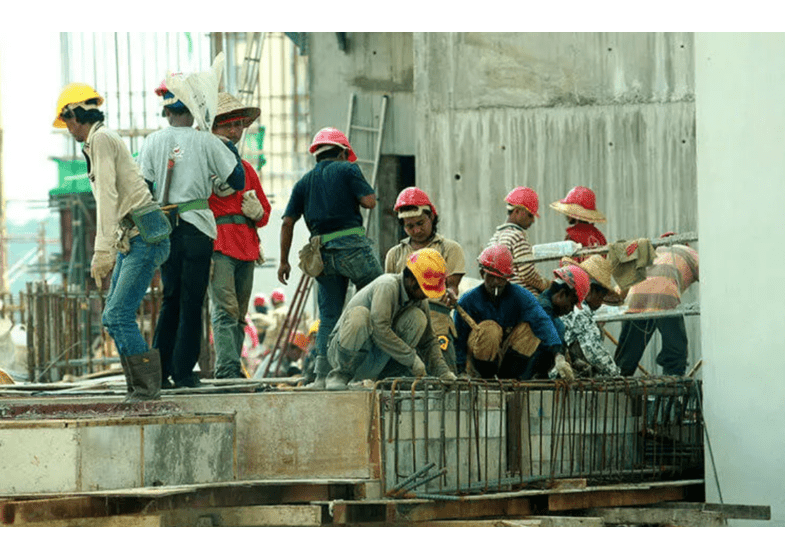
In Malaysia, the Social Security Organization (SOCSO), or Pertubuhan Keselamatan Sosial (PERKESO), plays a crucial role in providing social security protection to employees. While SOCSO is widely known for covering Malaysian citizens and permanent residents, many employers and foreign workers may not be fully aware of the eligibility requirements and benefits available to non-citizen employees. This article will explore SOCSO coverage for foreign workers in Malaysia, focusing on their eligibility and the benefits they are entitled to.
What is SOCSO?
The Social Security Organization, known as SOCSO, is a safety net for employees in Malaysia. It provides financial assistance and support to employees who face work-related accidents or illnesses. Both employers and employees have a responsibility to make contributions to SOCSO. SOCSO provides social security protection to employees in Malaysia through two main schemes:
- Employment Injury Scheme (EIS): This scheme provides coverage for accidents or occupational diseases that occur during work or while commuting between the workplace and home.
- Invalidity Pension Scheme (IPS): This scheme offers financial assistance to workers who suffer from invalidity or disability that prevents them from working.
How do You Check Your SOCSO Number Using Your IC?
Finding your SOCSO number is straightforward. Follow these steps:
- Online Inquiry: Visit the SOCSO website and use the online inquiry system. You must enter your IC (Identity Card) number to retrieve your SOCSO number.
- SOCSO Offices: You can visit any SOCSO office with your IC to get assistance from the staff.
- Employer Records: Your employer should have your SOCSO number as they are responsible for registering employees and making contributions.
Eligibility for SOCSO Coverage
Starting from 1 January 2019, employers who hire foreign workers are required to register their employees with the SOCSO and contribute to the Employment Injury Scheme as per the Employees’ Social Security Act 1969 (Act 4).
Contribution Rates
Effective from 1 July 2024, SOCSO coverage has been extended to foreign workers, including expatriates, with updated contribution requirements and benefits. The contribution rates for foreign workers will align with those of local employees. Employers will contribute 1.75% of the worker’s monthly wages, an increase from the previous rate of 1.25%. Foreign workers will now also contribute under Category 1, which includes both Employee and Employer contributions. This update brings foreign workers into full alignment with the social security contributions required for local workers, ensuring comprehensive protection under SOCSO’s schemes.
Benefits of SOCSO for Foreign Workers
Foreign workers in Malaysia can benefit from SOCSO coverage through the Employment Injury Scheme (EIS). The benefits include:
- Medical Benefits: SOCSO covers the cost of medical treatment for injuries or diseases sustained while at work or during the commute to and from the workplace. This includes hospitalization, surgery, and follow-up treatments.
- Temporary Disablement Benefit: If a foreign worker is temporarily unable to work due to a work-related injury, they are entitled to a temporary disablement benefit. This is a daily allowance paid during the period of incapacity until the worker is able to return to work.
- Permanent Disablement Benefit: In cases where a foreign worker suffers from a permanent disability due to a workplace accident, they may receive a lump-sum payment or a monthly pension, depending on the severity of the disability.
- Dependents’ Benefit: If a foreign worker dies as a result of a workplace accident or occupational disease, their dependents are entitled to a dependents’ benefit. This provides financial support to the worker’s spouse, children, or other eligible dependents.
- Funeral Benefit: SOCSO also provides a funeral benefit to the dependents of a deceased foreign worker, helping to cover the costs associated with the worker’s funeral expenses.
Conclusion
SOCSO coverage for foreign workers in Malaysia is an essential aspect of ensuring their safety and well-being while working in the country. By understanding the eligibility requirements and benefits available under the Employment Injury Scheme (EIS), both employers and foreign workers can take the necessary steps to ensure compliance and protection. Employers must fulfill their responsibilities by registering their foreign workers with SOCSO and making the required contributions, while foreign workers should be aware of the protection and benefits they are entitled to in case of workplace accidents or injuries.




